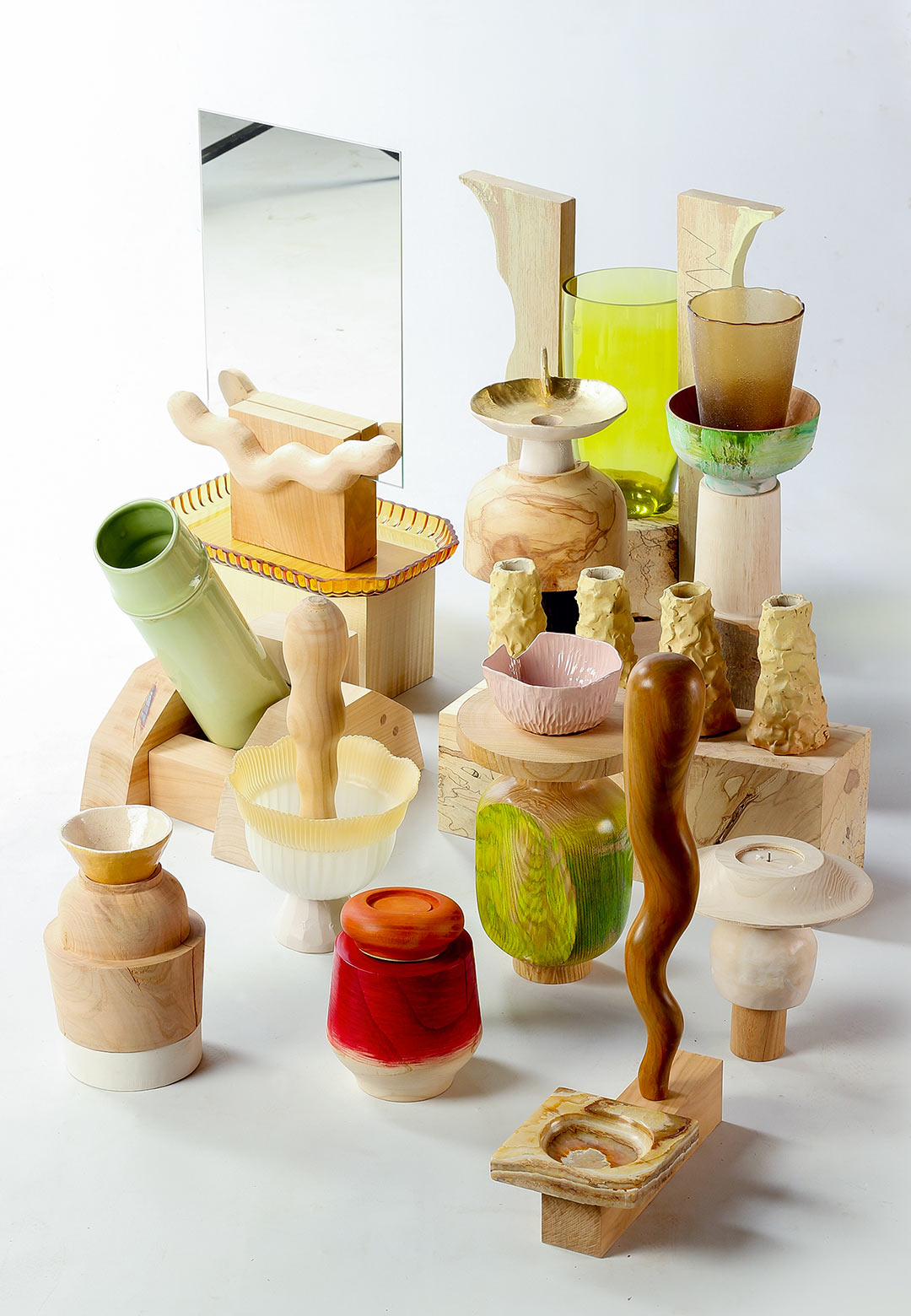“They should not be in the category of beautiful objects. They came out of the cornucopia in which the ugliness and suffering of the world blew. Mine, that of my sad afternoons, of my social condition,” reminisces French designer Benjamin Foucaud, acknowledging the items in the L’imprévu store that he often visited in the 90s with his family in France. The store supplied a cluttered, chaotic array of affordable utensils, toys, tools and decorative items, akin to modern-day discount outlets. These everyday objects summarise the mundanity of our reality. “Today, L’imprévu no longer exists. But there are thousands of such shops around the world—platforms of bad plastics, industrial ceramics, poorly moulded dinosaur figurines—gross distortions of our sold-out dreams,” he observes.
L’imprévu, which translates to Not as Planned, is the first collection among a series of political and social designs by Foucaud. It features 12 upcycled and reused pieces—four vases, three trays, two Box For Nothing containers, a candlestick, a candleholder and a mirror.
In an era where art is exclusive and often aligns with affluence, the Not as Planned series defies the norm radically. Contrary to the former's finest constituents, the latter consists of sculptures and functional objects made from scraps, found objects, and samples, lost or found, that did not fulfil their original purpose. The product design collection evocatively explores imperfect objects from a socioeconomic lens, challenging society’s ingrained beliefs influenced by the well-to-do stratum that frequently dictates perceptions of beauty and worth. It critiques society for its proclivity and reliance on luxurious materials detached from the on-ground, much-layered, chaotic realities.
Rejecting elaborate and decorated materials, the product designer based in Amiens, France, draws inspiration from his everyday life by embracing ordinary materials and places such as small towns, commercial areas and discount stores, daringly facing and translating his experiences of reality, as he creates these spontaneous disfigurations.
Foucad started training as an artisan cabinetmaker after years of practising as a creative director for various brands. The more he practised, the more he reflected on his relationship with the world. “I’m not a designer, I’m a craftsman and a designer, and that’s a different paradigm than being a designer, seated at the drawing board,” as Foucaud recalled in his previous Colorado collection. Refusing to become a reflection of the consumerist world, Foucaud perseveres to celebrate humanity and life through his work.
Not as Planned challenges entrenched design archetypes, of beauty and material choices, by valorising the unremarkable, the insignificant and the overlooked, and confronting the social predominance that dictates the aesthetic value of an object. Every piece from the collection is made distinct in its craftsmanship, as well as its demand to be experienced, to make sense of its purpose and personality. One cannot help but draw parallels between such objects and humans, their perceived realities and treatments.
The collection reflects Foucaud’s commitment to capture and interpret the rawness and authenticity of the world. Commenting on the state of scrapped objects and their potential to reflect real life, he says, “I could imagine that the world is only made of century-old oak trees, bronze, marble and blown glass. I could imagine myself more beautiful, richer, more interesting. But in the world that is coming, unpredictable, I know that a little voice will ask me one day or another — so, what have you done with reality?”
(Text by Bansari Paghdar, intern at STIR)






 Sign in with email
Sign in with email










What do you think?